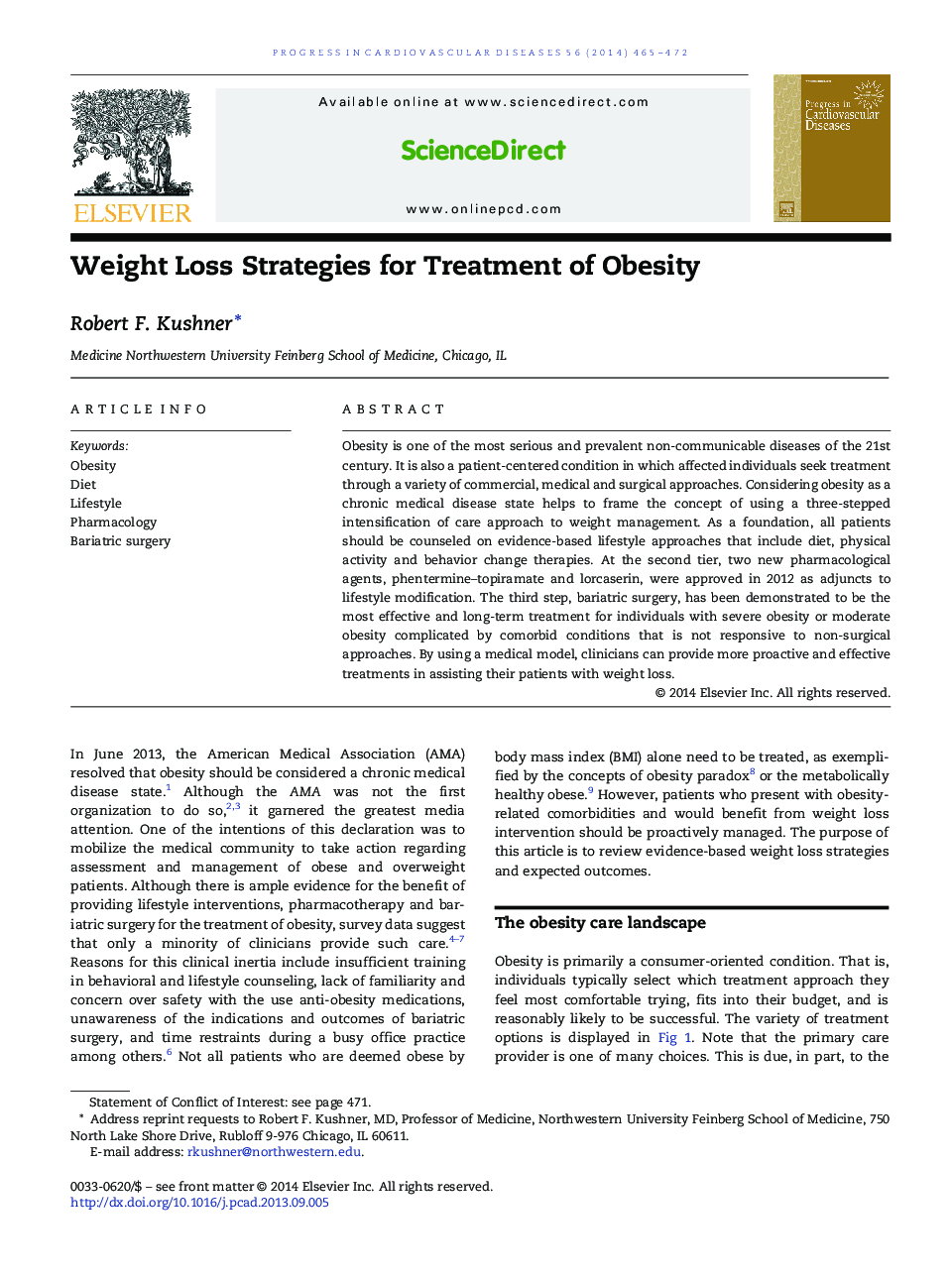| Article ID | Journal | Published Year | Pages | File Type |
|---|---|---|---|---|
| 3006610 | Progress in Cardiovascular Diseases | 2014 | 8 Pages |
Obesity is one of the most serious and prevalent non-communicable diseases of the 21st century. It is also a patient-centered condition in which affected individuals seek treatment through a variety of commercial, medical and surgical approaches. Considering obesity as a chronic medical disease state helps to frame the concept of using a three-stepped intensification of care approach to weight management. As a foundation, all patients should be counseled on evidence-based lifestyle approaches that include diet, physical activity and behavior change therapies. At the second tier, two new pharmacological agents, phentermine–topiramate and lorcaserin, were approved in 2012 as adjuncts to lifestyle modification. The third step, bariatric surgery, has been demonstrated to be the most effective and long-term treatment for individuals with severe obesity or moderate obesity complicated by comorbid conditions that is not responsive to non-surgical approaches. By using a medical model, clinicians can provide more proactive and effective treatments in assisting their patients with weight loss.
